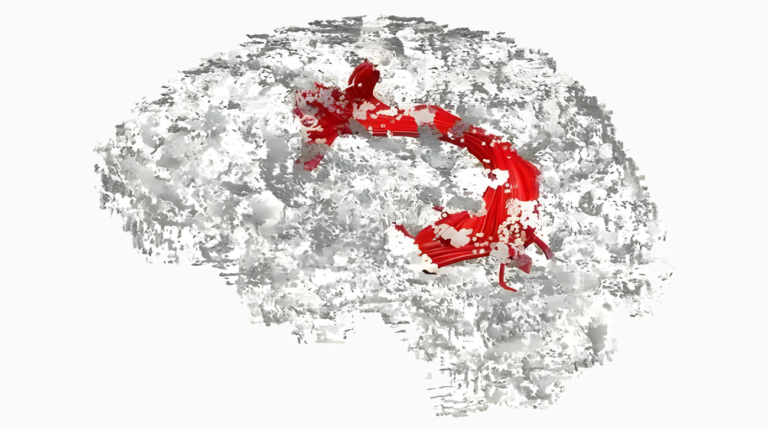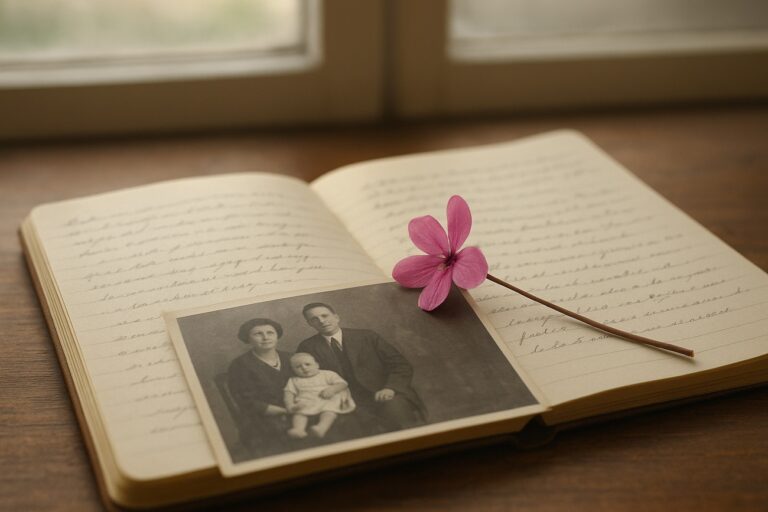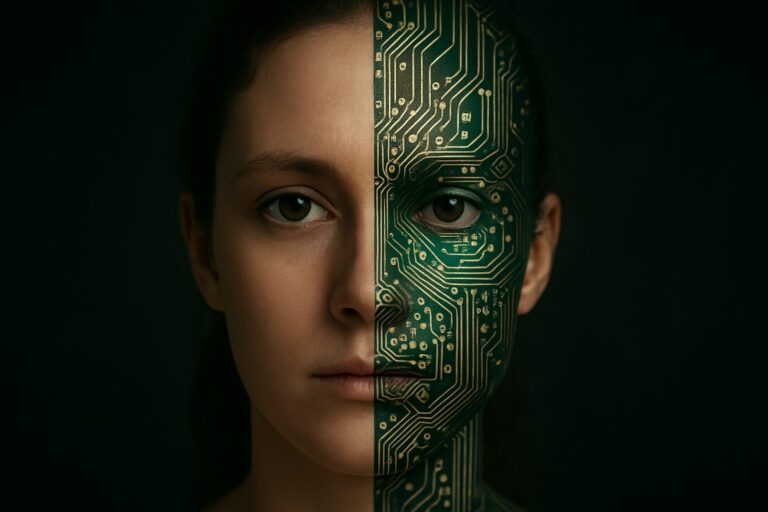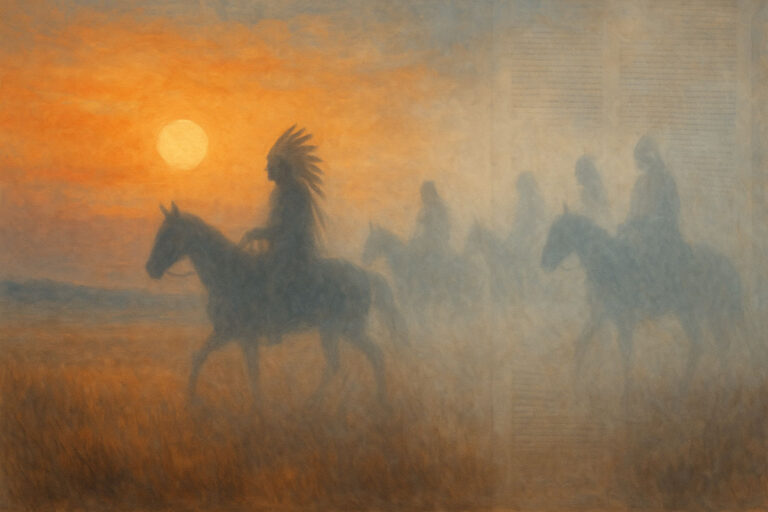Topic: Identity
LATEST IN THIS TOPIC
Feeling Dementia from the Play, The Father
Florian Zeller’s The Father immerses audiences inside dementia, transforming theatrical disorientation into visceral understanding and empathy.
Oedipus–Adapted for the Stage by Robert Icke
Icke’s Oedipus reimagines plague, politics, and identity, highlighting trauma, narrative humility, chronotopes, and ethical listening.
Playground by Richard Powers
A dazzling novel where ocean mysteries, human bonds, and uncertain AI futures intertwine with beauty and suspense.
Mandatory Evacuation Zone by Felice Aull
This collection traces memory, language, grief, and healing through sixty-three finely crafted poems that illuminate loss and resilience.
Speak by Louisa Hall
A haunting, multi-voiced novel exploring artificial intelligence, empathy, and what it truly means to be human.
How to Write the Great American Indian Novel by Sherman Alexie
Sherman Alexie’s ironic poem deconstructs stereotypes of Indigenous people, exposing cultural exploitation, identity loss, and survival within white American society.
Case History by Dannie Abse
This poem confronts prejudice, hate, and moral conflict, depicting a doctor treating a bigoted patient with professional duty despite deep offense.
Bibliophobia by Sarah Chihaya
Blending memoir and criticism, Sarah Chihaya’s Bibliophobia explores depression, identity, and the perilous yet healing power of books.
Regeneration by Pat Barker
A powerful antiwar novel exploring trauma, identity, and the psychological toll of combat on soldiers and those who treat them.
The Eye in the Door by Pat Barker
A gripping exploration of wartime paranoia, identity, and psychological trauma on the British Home Front during World War I.
Reading Lolita in Tehran by Azar Nafisi
A powerful memoir revealing how classic literature can illuminate, challenge, and resist authoritarianism, especially through the eyes of courageous women.
Two Paintings by Henry Sugimoto
Two haunting paintings by Henry Sugimoto capture the emotional weight and injustice of Japanese American internment during World War II.
Load More
FULL TOPIC LISTS
- All Tags (A -Z)
- Literature & Arts
- Health Related
- WORLD Locations
- Culture / Misc
- POPULAR
1
A
A Chinese City Doctor’s Notebook6 A Nervous Breakdown1 abandoned children1 ableism1 abortion1 Abstract1 abuse5 academic1 academic pressure1 accelerated approval1 acceptance2 accessibility3 accountability1 Acculturation2 achievement1 action1 activism5 ADA1 adaptation2 addiction8 Adolescence1 adoption1 adoption market1 advance-directives1 advanced cancer1 advanced directives1 advertising2 advocacy6 Aesthetics1 Afghanistan1 Africa2 African American1 afterlife1 aging6 Agnes Hathaway1 AI5 AIDS2 Alabama2 Alan Turing1 alcohol5 alcohol abuse1 Alcoholism1 alienation1 Alternative Medicine1 Alzheimer's2 Alzheimer’s1 Amanda Seyfried1 ambition3 America1 amputation1 Amy Chua1 anatomy2 Andrew Wakefield1 Anne Gridley1 anorexia1 anthropology2 anti-Semitism1 antivaccine1 antivaccine movement1 Anton Chekhov9 anxiety6 apathy1 apocalypse1 Apollo on Call5 apology1 Appalachia2 apps1 archives1 Aristotle1 Arkansas1 Army1 arsenic1 Art20 Art of Medicine1 artform1 Arthritis1 artificial intelligence3 Artist4 artistic pretense1 Artists1 Aruba1 Asian Experience1 assisted dying1 asylum1 athlete1 authenticity2 authority1 authorship1 autism1 autistic creativity1 autonomy5 avant-garde2 award7 awareness4
B
babies1 barbed wire1 barracks1 battlefield1 Beckwith-Wiedemann syndrome1 beliefs1 Berlin1 Berlin Wall1 bestseller5 betrayal2 bias1 bibliophobia1 Biblioscopy1 Big Tech1 bigotry1 Bilble1 bilingual1 bioethics1 biography5 biology1 biomedical2 biomedicine5 bipolar2 bipolar disorder1 bisexuality1 Black history1 bleeding1 Blind1 blog1 blood disease1 bloodletting1 body2 body parts1 Body Self-Image2 Book Club1 booker3 books1 brain1 branding1 Break1 breakdown1 breast cancer1 bribe1 Broadway2 brothels1 bubonic plague1 Bug1 burnout3
C
camera1 camp1 campaigns1 canada6 cancer3 candidates1 caregivers6 caregiving7 Carpathians1 Carrie Coon1 Catastrophe2 celebrities1 censorship1 chaos1 charity1 Chekhov3 chemotherapy1 Chicago1 child care1 child loss1 child soldiers1 childbirth1 childhood2 children3 China3 chinese4 Chinese Canadian1 chronic1 Chronic Disease3 Chronic Illness4 Chronic Illness/Chronic Disease1 chronically ill1 chronotope1 Cigarette2 cigars1 civilization1 class2 class conflict1 classical music2 clinic1 clinical intuition1 clinical judgment1 clinical trials2 coercion2 cognition1 College of Physicians1 colonialism1 Combat Stress1 comedy1 comics2 communication7 community7 compassion18 Complementary Medicine1 complexity1 Composer1 concentration camp1 conflict5 confrontation1 connection1 conscience1 conscientious objectors1 consciousness2 consent4 consequences1 conservatory1 consumer culture1 Contagion3 contemporary drama1 context1 contrast1 controversy1 Coping2 Coram1 corporeal1 COVID8 Covid-191 COVID-19 resonance1 creativity10 crip time1 crisis1 criticism2 critique1 cross-cultural dialogue1 Cross-Cultural Issues3 CT scan1 cultural conflict1 cultural identity1 cultural revolution1 cultural understanding1 cultural values1 culture14 cybersecurity1
D
Darwin1 data bias1 daughter1 daughter-father relationship1 Deaf artists1 death18 decision1 dedication1 defiance1 dehumanization1 dementia3 denial1 depression10 Depression Health1 desire1 detachment1 devastation1 Developing Countries1 devotion1 Diabetes1 diagnosis9 Dickens2 differences1 digital1 digital media1 dignity1 disabilities1 Disability9 disability arts1 disability rights1 disappearance1 discipline1 Disease3 disillusionment3 disorder1 disorders1 disorientation1 Displacement4 distortion1 diversity1 Dmitry Startsev1 Doctor-Patient Relationship7 doctors1 documentary6 domestic thriller1 domestic violence1 domesticity1 doubling1 drama4 dream1 dream analysis1 driftwood1 Drug1 drug approval1 DSM1 dual identity1 duty4 dying4
E
early modern medicine1 East Germany1 Echo1 Economy3 Edinburgh2 education10 effectiveness1 Egon Schiele1 El Paso1 elderly1 elders1 elections1 electrification1 Elizabeth Blackwell1 Elizabethan England1 embodiment1 emergency1 emergency medicine1 emergency room2 Emotion6 emotional collapse1 emotional decay1 emotional impact1 emotional journey1 emotional tone1 emotional trauma1 emotions1 empathy26 empowerment1 end-of-life1 endurance1 engagement1 English novels1 Environment1 epidemic3 epidemiology4 Epilepsy1 equality1 equanimity1 ER1 Eros1 escalation1 escape2 espionage1 Essay1 essays2 ethical dilemmas1 ethics23 eugenics3 Europe1 euthanasia1 evolution1 exhaustion1 exhibition2 exile2 expectation1 experience2 experiment1 experimental1 experimental film1 experimental medicine1 experimental theatre1 exploitation2 exploration1 external forces1 extracurricular activities1 eye1
F
fabrication1 fame1 Family11 family dynamics1 family history1 family life1 Family Relationships1 family reunification1 family support1 famous1 fantasy1 Fate1 Father-Daughter Relationship1 FDA2 fear6 femininity1 feminism6 Fiction7 filial piety1 film4 fire1 fleas1 Florida1 Focus Individual in Society4 focus-artificial-intelligence4 focus-chekhov8 focus-infectious-disease4 focus-mental-health4 focus-parenting3 focus-theater4 focus-trauma3 focus-video-games4 folklore1 folly1 food security1 foot1 forced separation1 forgiveness2 Forspoken1 Foundling Hospital1 fragmentation1 France1 freedom4 Freida McFadden1 Freud3 friendship2 friendships1 futility2 future2
G
game2 games1 gaming1 Gaskell1 gay3 Gen Z1 gender1 gender bias1 genetic condition1 Geneva1 Geneva Conventions1 germany5 global health2 Go1 Gothic1 government1 greed1 Greek1 grief11 Gromov1 growth1 guilt3 Gulf War Syndrome1 gynecology1
H
Haldol1 hallucination1 hallucinations1 Hamnet1 Handel1 haunted1 healing23 Health2 health humanities2 healthcare24 Helsinki Declaration1 Henri Dunant1 hepatitis1 hereditary spastic paraplegia1 heritage1 historical drama1 historical fiction1 historical nonfiction1 history32 History of Medicine1 Hitler1 HIV1 HMOs1 Hogarth1 holocaust1 holograms1 homeland1 hong kong1 hope3 hormone1 horror1 hospice1 hospital6 hospital clinics1 Hospitalization3 hospitals1 house calls1 HSP1 human decision1 human experience1 human trafficking1 human trials1 Human Worth2 humanitarian aid1 Humanities11 humanity7 humility1 humor2 Humor and Illness/Disability1 hunger2 hypertension1 hypocrisy1
I
iatrogenic1 Ibelin Redmoore1 Identity20 illness7 Illness and the Family1 Illness Narrative2 Illness Narrative/Pathography2 illustration1 imagination1 immersion1 immigrant1 immigrant families1 Immigrants1 immigration2 immunization2 imposter syndrome1 incarceration1 inclusion1 inclusive cinema1 independence3 India3 indifference1 Indigenous2 indigenous healing1 Indigenous People1 individuality3 industry1 inequity1 infection1 infectious diseases1 infidelity1 influenza2 injury1 injustice3 innovation4 insanity1 inspiration1 institutions1 insurance3 integrity1 interdisciplinarity1 international adoption1 international intrigue1 internet culture1 internment1 interpretation1 intimacy2 Introvert1 Ionych1 Iran2 Ireland1 irony2 isolation3 IUCD1
J
Japanese1 Japanese American1 Jay Baruch1 Jean-Baptiste Greuze1 Jewish2 John Barry1 Johns Hopkins1 judgment1 Julie Ridge1 jury1 justice5
K
L
landscape1 language7 language barrier1 language breakdown1 large language models1 Latina/Latino Experience1 laughter1 law4 lawsuit2 learning1 legacy2 legislation6 LGBTQ1 life-altering event1 Lifestyle1 literary theory1 literature28 literature and medicine1 litigation1 lobotomy1 London3 Loneliness3 Los Angeles2 loss6 Louisa Hall1 love6 Luke Fildes1
M
machine learning1 mad studies1 madwoman in the attic1 magazine1 Maggie O’Farrell1 magic1 MAID2 Maine1 malnutrition1 malpractice1 Malthus1 Malthusianism1 Mandarin1 manifestations1 marketing2 Martyrdom2 masculinity2 mass casualty event1 Massachusetts1 Mats Steen1 meaning2 media2 medical1 medical drama2 Medical Education2 medical error1 Medical Ethics4 medical history3 medical humanities5 medical procedures1 medical records1 medical training1 medicine22 Melikhovo1 Memoir13 memoirs1 memorabilia1 Memory9 mental health11 Mental Illness9 messaging1 Messiah1 metaphor2 microbiology1 Midwife1 Migraines1 military1 military experimentation1 military oppression1 mind-body1 mindfulness1 minstrel1 Miranda1 mirror metaphor1 misinformation2 misogyny2 misoprostol1 misunderstanding1 MMR1 model minority1 Montaigne1 moral1 moral conflict1 moral decline1 moral dilemma1 moral dilemmas2 Moral Injury2 morality4 mortality9 Moscow1 mother2 motherhood4 Mourning4 Movement6 movies1 multimedia2 multiple sclerosis1 Munch1 muscular dystrophy1 museum11 music4 mutism1 mystery2 mythology1
N
naming choice1 Narcissus1 narrative12 narrative analysis1 Narrative as Method1 narrative structure1 narrative triptych1 native1 natural disasters1 nature3 Nazi2 neoliberalism1 Nepal1 neurobiology1 neurodegenerative disease1 neurodivergent1 neurology1 neuroscience1 New York28 nightmare1 nightmares1 Nisei1 Nobel3 nonfiction5 normalcy1 normalization1 Norway2 novel9 numbness1 Nuremberg Code1 Nuremberg Laws1 nurse1 nurses1
O
objectivity1 observation2 obsession2 obstetrics1 ocean1 Olga Tokarczuk2 oncology2 one-child policy2 online1 online screening1 open water1 open world1 openness1 opera1 opioid crisis1 opioids1 oppression1 optimism1 oral history1 Ordinary Life1 orphanage1 orphaned girls1 Osip Braz1 otaku children1 Ottawa1 outbreak1 outrage1 overdose1 OxyContin1
P
pacifism1 Pain6 painting2 paintings3 palliative3 palliative care1 pandemic9 pandemics1 panpsychism1 pap test1 paradoxes1 paralysis1 paranoia2 parental control1 parental grief1 Parenthood2 parenting4 parenting conflict1 Paris1 Parkinson’s1 passion1 Pat Barker3 patents1 Pathography3 Pathology1 pathophysiology1 patient10 patient care4 Patient Experience5 patient neglect1 patientcare1 patriarchy3 Paul Feig1 peace1 Pearl Harbor1 pedagogy1 pediatric cases1 pediatrician1 pediatrics1 pelvic exam1 perception1 persecution1 perseverance1 personal1 Perspective2 phantom limb pain1 pharmaceutical industry1 pharmaceuticals2 pharmacology2 Philadelphia3 philanthropy1 Philosophy7 photographer1 Photography2 phronesis1 physician9 Physician Experience2 physician training1 physician-playwright1 physician-writers1 physiology3 pioneer2 Pittsburgh1 placebo1 plague3 planning1 play4 play reading1 playwriting1 podcast4 poem1 poet1 poetic1 poetry14 poison1 Poland1 policy1 politics8 pop culture1 popular6 population1 Porter1 Portrait2 Poster1 postpartum1 poverty4 power2 power dynamics1 Power Relations5 practitioners1 prediction1 pregnancy5 prejudice1 prenatal testing1 preparation1 preservation1 presidential1 pressure1 prevention1 pricing1 primary lateral sclerosis1 prison1 prisoners2 Prize15 professional identity1 professionalism3 propaganda2 prostitution1 protest3 protests1 Providence1 provincial town1 prudence1 Prussia1 psalm1 psychiatric1 psychiatry19 Psycho-social Medicine1 psychoanalysis1 psychological ignorance1 psychology6 psychosis2 Psychosocial Medicine1 Psychosomatic Medicine1 Psychotherapy3 PTSD4 public health10 public opinion1 Pulitzer6
Q
R
race2 racism8 radiation1 radical care1 rage1 Rape1 Rare Disease Day1 rats1 reading1 realism2 realistic portrayal1 reality3 Rebellion1 reconciliation1 recovery5 Red Crescent1 Red Cross1 redemption3 referrals1 reflection5 reform1 reforms1 regeneration1 regret2 regulation1 regulations1 rehabilitation1 rejection1 relationship3 relationships6 reliability1 Religion2 Remedies1 remorse1 renewal3 repentance1 representation1 repression4 reproductive rights2 research4 residency1 resilience14 resistance3 respiratory illness1 responsibility2 RestFest1 restriction1 revelation1 revenge2 revolution1 rights1 risk and benefit1 Ritual2 robotics1 Rococo1 role-playing2 romance1 Royal Court Theatre1 RPG1 rubella1 rumors1 rural1 rural medicine1 Russia5
S
sacrifice2 safety3 Sakhalin1 San Francisco2 sanatorium1 Sarah Kane1 SARS1 satire1 Scapegoating1 Science10 science and art1 science and faith1 sculpture1 seasteading1 secrecy1 secrets1 Seizures1 self-defense1 self-discovery1 self-image1 self-worth1 selfhood1 seniors1 sensory experience1 separation1 sexuality7 shame1 Shannon Vallor1 Shell Shock1 shellshock2 Short Stories1 short story1 Singer1 skepticism2 slavery2 smartphones1 smoking1 social hierarchy1 social injustice1 social media1 social realism1 social reform1 social work1 societal trauma1 society10 Soderbergh1 Soho1 soldiers1 solidarity1 Spanish flu1 Speak1 Spinney1 spiritual1 spirituality2 stage interpretation1 starvation2 Stasi1 statistics1 stewardship1 stigma4 stoicism1 storytelling9 strength1 stress2 student1 students1 suffering15 suicide3 Sundance1 supernatural1 support1 surgery11 Surrealism1 surrogate markers1 surveillance4 Survival11 survivors1 suspense1 swim1 Switzerland1 Sydney Sweeney1 symbolism1 symptoms1
T
taiwan1 tate1 Teaching7 Technology9 Tehran1 television3 tennis1 tension2 terminal illness1 thalidomide1 The Housemaid1 The Knick1 The Pit1 theater9 theater criticism1 theology1 therapy4 Third Reich1 Thomas Coram1 Thomas Mann1 tiger mother1 Time1 tobacco2 tokens1 Toronto3 totalitarianism1 toxicology2 Tracy Letts1 tradition1 traditions1 tragedy4 training1 translation2 transmission1 trauma23 travel2 treatment8 trials1 trust2 truth2 Tuberculosis3 Turkins1 Tuskegee1 TV1 twins1
U
Uganda1 UK2 ultrasound1 uncertainty4 unconscious1 unethical1 unpredictability1 untold stories1 Urban Violence1
V
vaccination1 vaccine1 vaccines2 Vancouver1 Vasilyev1 vengeance1 victim1 Victorian2 Victorian art1 video games4 Vienna2 village1 violence4 virology1 virtual1 virtual festival1 Vision1 visual art1 voting1 vulnerability5
W
wait times1 War16 War and Medicine1 warcraft1 Ward No. 61 Watch Me Walk1 Western medicine1 wilderness1 Wilfred Owen2 William Shakespeare1 Willowbrook study1 wisdom1 women1 women in medicine2 women pioneers1 women's health1 women's rights1 women’s agency1 women’s health1 workforce1 working class1 World of Warcraft1 World War I1 World War II1 Writer3 writing1 WWI1
X
Y
Literature
Aristotle1 Bilble1 booker3 Darwin1 documentary6 Fiction7 Freud3 literature28 magazine1 manifestations1 Memoir13 metaphor2 narrative12 Nobel3 nonfiction5 novel9 paradoxes1 Philosophy7 poet1 poetry14 Prize15 psalm1 Pulitzer6 reflection5 satire1 storytelling9 Teaching7 Thomas Mann1 William Shakespeare1 Writer3
Arts
A
abuse5 addiction8 AIDS2 alcohol abuse1 Alcoholism1 Alternative Medicine1 Alzheimer's2 arsenic1 Art of Medicine1 Arthritis1 assisted dying1 asylum1
B
Beckwith-Wiedemann syndrome1 bioethics1 biomedical2 biomedicine5 bipolar2 bipolar disorder1 bleeding1 Blind1 blood disease1 bloodletting1 brain1 bubonic plague1
C
cancer3 caregivers6 caregiving7 chemotherapy1 childbirth1 chronic1 Chronic Disease3 Chronic Illness4 Chronic Illness/Chronic Disease1 clinic1 clinical intuition1 clinical judgment1 clinical trials2 Complementary Medicine1 COVID8 Covid-191 COVID-19 resonance1 CT scan1
D
death18 dementia3 depression10 Depression Health1 Diabetes1 diagnosis9 disabilities1 Disease3 disorder1 disorders1 Doctor-Patient Relationship7 doctors1 Drug1 DSM1
E
emergency1 emergency medicine1 emergency room2 emotional trauma1 epidemic3 epidemiology4 Epilepsy1 ER1 eugenics3 experimental medicine1 eye1
F
G
H
hallucinations1 healing23 Health2 healthcare24 History of Medicine1 HIV1 HMOs1 hormone1 hospital6 hospital clinics1 Hospitalization3 hospitals1 house calls1 Humor and Illness/Disability1 hypertension1
I
iatrogenic1 illness7 Illness and the Family1 Illness Narrative2 Illness Narrative/Pathography2 immunization2 infection1 infectious diseases1 injury1
L
M
malnutrition1 medical1 medical drama2 Medical Education2 medical error1 Medical Ethics4 medical history3 medical humanities5 medical procedures1 medical records1 medical training1 medicine22 mental health11 Mental Illness9 Migraines1 minstrel1 multiple sclerosis1 muscular dystrophy1
N
O
P
Pain6 palliative3 palliative care1 pandemic9 pandemics1 panpsychism1 pap test1 paralysis1 paranoia2 parental grief1 Parkinson’s1 Pathography3 Pathology1 pathophysiology1 patient10 patient care4 Patient Experience5 patientcare1 pediatric cases1 pediatrician1 pediatrics1 pelvic exam1 phantom limb pain1 pharmaceuticals2 pharmacology2 phronesis1 physician9 Physician Experience2 physiology3 plague3 postpartum1 practitioners1 prenatal testing1 prevention1 psychiatric1 psychiatry19 Psycho-social Medicine1 psychoanalysis1 psychological ignorance1 psychology6 psychosis2 Psychosocial Medicine1 Psychosomatic Medicine1 Psychotherapy3 PTSD4 public health10
R
S
T
V
W
X
1
A
A Chinese City Doctor’s Notebook6 A Nervous Breakdown1 abandoned children1 ableism1 abortion1 academic1 academic pressure1 accelerated approval1 acceptance2 accessibility3 accountability1 Acculturation2 achievement1 action1 activism5 ADA1 adaptation2 Adolescence1 adoption1 adoption market1 advance-directives1 advanced cancer1 advanced directives1 advertising2 advocacy6 Aesthetics1 African American1 afterlife1 aging6 Agnes Hathaway1 AI5 Alan Turing1 alcohol5 alienation1 Alzheimer’s1 Amanda Seyfried1 ambition3 amputation1 Amy Chua1 anatomy2 Andrew Wakefield1 Anne Gridley1 anorexia1 anthropology2 anti-Semitism1 antivaccine1 antivaccine movement1 Anton Chekhov9 anxiety6 apathy1 apocalypse1 Apollo on Call5 apology1 apps1 archives1 Army1 artform1 artificial intelligence3 artistic pretense1 Artists1 Asian Experience1 athlete1 authenticity2 authority1 authorship1 autism1 autistic creativity1 autonomy5 award7 awareness4
B
babies1 barbed wire1 barracks1 battlefield1 beliefs1 bestseller5 betrayal2 bias1 bibliophobia1 Biblioscopy1 Big Tech1 bigotry1 bilingual1 biology1 bisexuality1 Black history1 blog1 body2 body parts1 Body Self-Image2 Book Club1 books1 branding1 Break1 breakdown1 breast cancer1 bribe1 brothels1 Bug1 burnout3
C
camera1 camp1 campaigns1 candidates1 Carpathians1 Carrie Coon1 Catastrophe2 celebrities1 censorship1 chaos1 charity1 Chekhov3 child care1 child loss1 child soldiers1 childhood2 children3 chinese4 Chinese Canadian1 chronically ill1 chronotope1 Cigarette2 cigars1 civilization1 class2 class conflict1 classical music2 coercion2 cognition1 College of Physicians1 colonialism1 Combat Stress1 communication7 community7 compassion18 complexity1 concentration camp1 conflict5 confrontation1 connection1 conscience1 conscientious objectors1 consciousness2 consent4 consequences1 conservatory1 consumer culture1 Contagion3 contemporary drama1 context1 contrast1 controversy1 Coping2 Coram1 corporeal1 crip time1 crisis1 criticism2 critique1 cross-cultural dialogue1 Cross-Cultural Issues3 cultural conflict1 cultural identity1 cultural revolution1 cultural understanding1 cultural values1 culture14 cybersecurity1
D
data bias1 daughter1 daughter-father relationship1 Deaf artists1 decision1 dedication1 defiance1 dehumanization1 denial1 desire1 detachment1 devastation1 Developing Countries1 devotion1 Dickens2 differences1 digital1 digital media1 dignity1 Disability9 disability arts1 disability rights1 disappearance1 discipline1 disillusionment3 disorientation1 Displacement4 distortion1 diversity1 Dmitry Startsev1 domestic thriller1 domestic violence1 domesticity1 doubling1 dream1 dream analysis1 driftwood1 drug approval1 dual identity1 duty4 dying4
E
early modern medicine1 Echo1 Economy3 education10 effectiveness1 Egon Schiele1 elderly1 elders1 elections1 electrification1 Elizabeth Blackwell1 Elizabethan England1 embodiment1 Emotion6 emotional collapse1 emotional decay1 emotional impact1 emotional journey1 emotional tone1 emotions1 empathy26 empowerment1 end-of-life1 endurance1 engagement1 English novels1 Environment1 equality1 equanimity1 Eros1 escalation1 escape2 espionage1 Essay1 essays2 ethical dilemmas1 ethics23 euthanasia1 evolution1 exhaustion1 exhibition2 exile2 expectation1 experience2 experiment1 experimental1 experimental film1 experimental theatre1 exploitation2 exploration1 external forces1 extracurricular activities1
F
fabrication1 fame1 Family11 family dynamics1 family history1 family life1 Family Relationships1 family reunification1 family support1 famous1 fantasy1 Fate1 Father-Daughter Relationship1 fear6 femininity1 feminism6 filial piety1 fire1 fleas1 Focus Individual in Society4 focus-artificial-intelligence4 focus-chekhov8 focus-parenting3 focus-theater4 focus-video-games4 folklore1 folly1 food security1 foot1 forced separation1 forgiveness2 Forspoken1 fragmentation1 freedom4 Freida McFadden1 friendship2 friendships1 futility2 future2
G
game2 games1 gaming1 Gaskell1 gay3 Gen Z1 gender1 gender bias1 genetic condition1 Geneva Conventions1 Go1 Gothic1 government1 greed1 grief11 Gromov1 growth1 guilt3 Gulf War Syndrome1
H
Haldol1 hallucination1 Hamnet1 Handel1 haunted1 health humanities2 Helsinki Declaration1 Henri Dunant1 hepatitis1 hereditary spastic paraplegia1 heritage1 historical drama1 historical fiction1 historical nonfiction1 history32 Hitler1 Hogarth1 holocaust1 holograms1 homeland1 hope3 horror1 hospice1 HSP1 human decision1 human experience1 human trafficking1 human trials1 Human Worth2 humanitarian aid1 Humanities11 humanity7 humility1 humor2 hunger2 hypocrisy1
I
Ibelin Redmoore1 Identity20 illustration1 imagination1 immersion1 immigrant1 immigrant families1 Immigrants1 immigration2 imposter syndrome1 incarceration1 inclusion1 inclusive cinema1 independence3 indifference1 Indigenous2 indigenous healing1 Indigenous People1 individuality3 industry1 inequity1 infidelity1 influenza2 injustice3 innovation4 insanity1 inspiration1 institutions1 insurance3 integrity1 interdisciplinarity1 international adoption1 international intrigue1 internet culture1 internment1 interpretation1 intimacy2 Introvert1 Ionych1 irony2 isolation3 IUCD1
J
Japanese1 Japanese American1 Jay Baruch1 Jean-Baptiste Greuze1 Jewish2 John Barry1 Johns Hopkins1 judgment1 Julie Ridge1 jury1 justice5
K
L
landscape1 language7 language barrier1 language breakdown1 large language models1 Latina/Latino Experience1 laughter1 law4 lawsuit2 learning1 legacy2 legislation6 LGBTQ1 life-altering event1 Lifestyle1 literary theory1 literature and medicine1 litigation1 Loneliness3 loss6 Louisa Hall1 love6 Luke Fildes1
M
machine learning1 mad studies1 madwoman in the attic1 Maggie O’Farrell1 magic1 MAID2 malpractice1 Malthus1 Malthusianism1 Mandarin1 marketing2 Martyrdom2 masculinity2 mass casualty event1 Mats Steen1 meaning2 media2 Melikhovo1 memoirs1 memorabilia1 Memory9 messaging1 Messiah1 microbiology1 Midwife1 military1 military experimentation1 military oppression1 mind-body1 mindfulness1 Miranda1 mirror metaphor1 misinformation2 misogyny2 misoprostol1 misunderstanding1 MMR1 model minority1 Montaigne1 moral1 moral conflict1 moral decline1 moral dilemma1 moral dilemmas2 Moral Injury2 morality4 mortality9 mother2 motherhood4 Mourning4 Movement6 movies1 multimedia2 mutism1 mystery2 mythology1
N
naming choice1 Narcissus1 narrative analysis1 Narrative as Method1 narrative structure1 narrative triptych1 native1 natural disasters1 nature3 Nazi2 neoliberalism1 neurodegenerative disease1 neurodivergent1 nightmare1 nightmares1 Nisei1 normalcy1 normalization1 numbness1 Nuremberg Code1 Nuremberg Laws1 nurses1
O
objectivity1 observation2 obsession2 obstetrics1 ocean1 Olga Tokarczuk2 one-child policy2 online1 online screening1 open water1 open world1 openness1 opioid crisis1 opioids1 oppression1 optimism1 Ordinary Life1 orphanage1 orphaned girls1 Osip Braz1 otaku children1 outbreak1 outrage1
P
pacifism1 painting2 parental control1 Parenthood2 parenting4 parenting conflict1 passion1 Pat Barker3 patents1 patient neglect1 patriarchy3 Paul Feig1 peace1 pedagogy1 perception1 persecution1 perseverance1 personal1 Perspective2 pharmaceutical industry1 philanthropy1 photographer1 physician training1 physician-playwright1 physician-writers1 pioneer2 placebo1 planning1 play reading1 playwriting1 podcast4 poem1 poetic1 poison1 policy1 politics8 pop culture1 popular6 population1 Porter1 poverty4 power2 power dynamics1 Power Relations5 prediction1 pregnancy5 prejudice1 preparation1 preservation1 presidential1 pressure1 pricing1 primary lateral sclerosis1 prison1 prisoners2 professional identity1 professionalism3 propaganda2 prostitution1 protest3 protests1 provincial town1 prudence1 public opinion1
Q
R
race2 racism8 radical care1 rage1 Rape1 Rare Disease Day1 rats1 reading1 realism2 realistic portrayal1 reality3 Rebellion1 reconciliation1 Red Crescent1 Red Cross1 redemption3 referrals1 reform1 reforms1 regeneration1 regret2 regulation1 regulations1 rejection1 relationship3 relationships6 reliability1 Religion2 remorse1 renewal3 repentance1 representation1 repression4 reproductive rights2 research4 resilience14 resistance3 responsibility2 RestFest1 restriction1 revelation1 revenge2 revolution1 rights1 risk and benefit1 Ritual2 robotics1 Rococo1 role-playing2 romance1 Royal Court Theatre1 RPG1 rubella1 rumors1 rural1
S
sacrifice2 safety3 Sakhalin1 sanatorium1 Sarah Kane1 Scapegoating1 Science10 science and art1 science and faith1 sculpture1 seasteading1 secrecy1 secrets1 self-defense1 self-discovery1 self-image1 self-worth1 selfhood1 seniors1 sensory experience1 separation1 sexuality7 shame1 Shannon Vallor1 Shell Shock1 shellshock2 Short Stories1 short story1 skepticism2 slavery2 smartphones1 smoking1 social hierarchy1 social injustice1 social media1 social realism1 social reform1 social work1 societal trauma1 society10 Soderbergh1 Soho1 soldiers1 solidarity1 Speak1 Spinney1 spiritual1 spirituality2 stage interpretation1 starvation2 Stasi1 statistics1 stewardship1 stigma4 stoicism1 strength1 stress2 student1 students1 suicide3 Sundance1 supernatural1 support1 Surrealism1 surrogate markers1 surveillance4 Survival11 survivors1 suspense1 swim1 Sydney Sweeney1 symbolism1 symptoms1
T
tate1 Technology9 television3 tennis1 tension2 thalidomide1 The Housemaid1 The Knick1 The Pit1 theater criticism1 theology1 Third Reich1 Thomas Coram1 tiger mother1 Time1 tobacco2 tokens1 totalitarianism1 Tracy Letts1 tradition1 traditions1 tragedy4 translation2 transmission1 travel2 trials1 trust2 truth2 Turkins1 Tuskegee1 TV1 twins1
U
V
vaccines2 Vasilyev1 vengeance1 victim1 Victorian2 Victorian art1 video games4 village1 violence4 virtual1 virtual festival1 voting1 vulnerability5
W
wait times1 War16 War and Medicine1 warcraft1 Ward No. 61 Watch Me Walk1 Western medicine1 wilderness1 Wilfred Owen2 wisdom1 women1 women in medicine2 women pioneers1 women's rights1 women’s agency1 women’s health1 workforce1 working class1 World of Warcraft1 World War I1 World War II1 writing1 WWI1




















